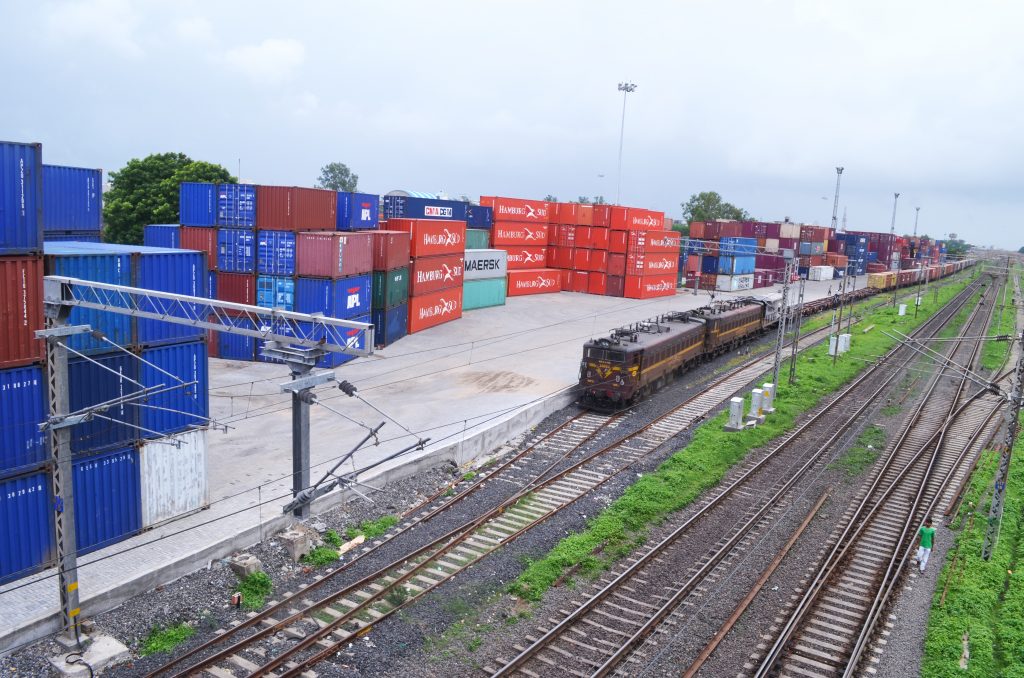November 10, 2020: The new policy takes into account present capacity, future growth potential and regional imbalances.
The Central Board of Indirect Taxes and Customs (CBIC) has revised the policy and issued fresh guidelines for setting up Inland Container Depots (ICD), Container Freight Stations (CFS), and Air Freight Stations (AFS).
The new policy takes into account present capacity, future growth potential and regional imbalances. Accordingly, the proposals for establishment of ICD in states that have few ICDs (green zones) will be considered favourably. In some states that have over-utilised facilities (blue zones), proposals will be considered for specific trade-generating locations. In states that have adequate ICD/CFS facilities (red zones), no approvals will be given, except where new facilities are justified in trade generating locations with high import and export potential.
The development of ICDs within 200 kms of a connecting or nearest seaport will be discouraged. No new ICD will be permitted within 100 kms of an existing one. These distance restrictions can be relaxed in green zones. New proposals will be considered in consonance with the national logistics action plan. Development of ICD based on transport through inland national waterways will be encouraged. New ICD linked to railway freight corridors will also be considered. New CFS will be allowed only when connected to ports in the permissible zones after considering existing capacity and utilisation parameters. Proposals for setting up AFS will get approvals based on the merits of each case. Minimum threshold performance for ICD and CFS shall be 7,200 and 1,200 TEUs (20 feet container equivalent units) or consignments per year (both ways), respectively.
The new policy addresses the identified regulatory and logistics concerns, establishes a framework for functional requirements pertaining to the design and operation of dry ports and aims to lay down appropriate institutional, administrative and regulatory framework for development and smooth operation of ICD/CFS/AFS. The guidelines deal with the minimum land area requirements, ownership of land, minimum eligibility requirements and prior experience of legal entities who want establish ICD/CFS/AFS, the processes for applications, recommendations of jurisdictional Customs Commissioner, time bound consideration of applications by the Inter-Ministerial Committee (IMC), issue of letter of intent, time limit for completion of the projects and commencing operations in the new facilities and suspension and cancellation of approvals in certain circumstances. The guidelines also deal with procedures for change of CFS to ICD and vice versa, notification of AFS in existing ICD, change in ownership, change in location etc.
The CBIC guidelines clearly spell out minimum infrastructure and other facilities required for setting up ICD/CFS/AFS, regulatory and other compliances, the disciplines for record handling, receipt and storage of cargo, performance monitoring, duration, renewal and de-notification of facility, and scope and applicability of the new instructions.
The new policy responds to changes in various policies, technological landscape and logistics ecosystem. The last policy was announced in 1992. Since then, the cargo volumes and ICD/CFS capacities have increased manifold. New initiatives such as authorised economic operator (AEO) programme, direct port delivery (DPD), direct port entry (DPE), self-sealing (RFID seals), self-assessment, electronic cargo tracking system (ECTS) and risk management system-based facilitation have been introduced raising efficiency of imports and exports logistics operations. The IMC for approval of ICD/CFS has also been reconstituted.
Given the context, the new policy and guidelines are realistic, comprehensive and transparent. The CBIC deserves appreciation for its well-drafted and helpful circular.
Source: Business Standard








